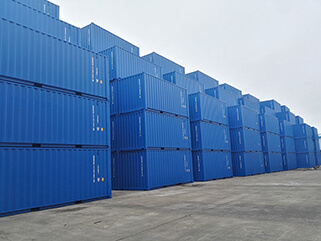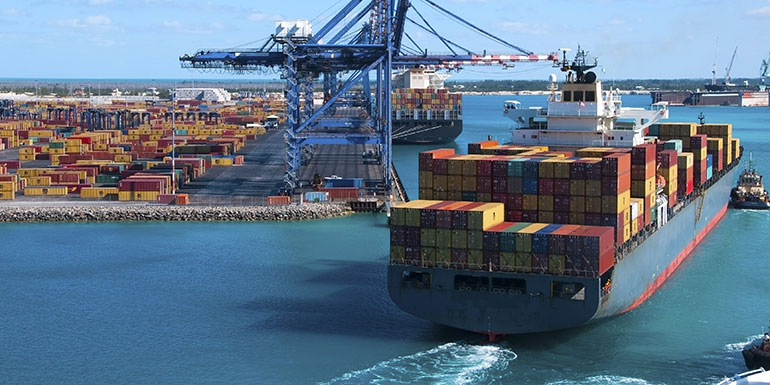Climate benefits from slow steaming 'grossly exaggerated'
Climate benefits from slow steaming 'grossly exaggerated'
Billion dollar offer for Triton, the world's largest container rental company
DRIVE SLOWLY

Ships that slow down are not as good for the climate as is generally assumed, says the British research firm Clarksons Research based on a self-described ‘pioneering’ analysis.
According to the researchers, there are now “grossly exaggerated” assumptions in the shipping industry about the extent to which slow steaming can contribute to reducing CO2 emissions and compliance with the Carbon Intensity Index (CII) rules of the International Maritime Organization (IMO).
False expectations
The fuel savings at slower speeds promised on paper often disappoint in practice, according to Clarkson, leading to false expectations, according to the researchers. Slow steaming can pay off on some routes and distances, but it remains important to also look at other efficiency measures, according to the rapporteurs.
Container shipping companies have recently moderated their speed more often, not only to use less fuel but also to artificially reduce the capacity of their fleet, now that container volumes are disappointing and at the same time new, large container ships are coming into service.

Rogier Vervoort is co-owner of Trident Container Leasing B.V. With 30 years of experience in the container business, he is a specialist in container leasing and trading.
Climate benefits from slow steaming 'grossly exaggerated'
DRIVE SLOWLY
Ships that slow down are not as good for the climate as is generally assumed, says the British research firm Clarksons Research based on a self-described ‘pioneering’ analysis.

According to the researchers, there are now “grossly exaggerated” assumptions in the shipping industry about the extent to which slow steaming can contribute to reducing CO2 emissions and compliance with the Carbon Intensity Index (CII) rules of the International Maritime Organization (IMO).
False expectations
The fuel savings at slower speeds promised on paper often disappoint in practice, according to Clarkson, leading to false expectations, according to the researchers. Slow steaming can pay off on some routes and distances, but it remains important to also look at other efficiency measures, according to the rapporteurs.
Container shipping companies have recently moderated their speed more often, not only to use less fuel but also to artificially reduce the capacity of their fleet, now that container volumes are disappointing and at the same time new, large container ships are coming into service.

Rogier Vervoort is co-owner of Trident Container Leasing B.V. With 30 years of experience in the container business, he is a specialist in container leasing and trading.



